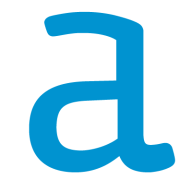

Alteryx Designer and Informatica IDMC both compete in the data integration category. Based on feature comparison, Informatica IDMC has the upper hand due to its comprehensive integration with master data management and AI capabilities.
Features: Informatica IDMC offers integration with master data management, data profiling, data quality, and governance within a single platform, along with support for various data sources and advanced AI capabilities. Alteryx Designer is known for its drag-and-drop interface, facilitating workflows for non-technical users and includes tools for data preparation and analytics with a focus on automation.
Room for Improvement: Users of Informatica IDMC suggest improvements in its user interface for easier navigation and enhanced real-time integration capabilities, as well as support for older technologies and enhanced AI features. Alteryx Designer faces criticism for its high cost, limiting accessibility for smaller enterprises, and requires enhancements in data integration capabilities and a more inclusive pricing model.
Ease of Deployment and Customer Service: Informatica IDMC provides deployment options for on-premises, cloud, and hybrid environments and is generally praised for its customer support, though response times can vary. Alteryx Designer, while responsive to customer needs, has slower cloud deployment due to separate licensing for server capabilities. Both have strong customer service records.
Pricing and ROI: Informatica IDMC is premium-priced, reflecting its extensive features and enterprise-targeted functionalities, with a subscription model seen as flexible but costly. ROI experiences are mixed and may require long-term investments. Alteryx Designer is noted for high costs, especially when scaling or integrating collaborative features, with initial costs potentially deterring smaller enterprises. However, users appreciate its value in time and efficiency gains.
Leadership prefers to utilize third-party tools, such as Snowflake, which has both storage and ELT features.
The stability and performance remain issues.
Compared to Collibra Catalog, where the value is noticeable within six months.
There are areas where they need to improve response time and overall competence.
Due to the tool's maturity limitations, solutions are not always simple and often require workarounds.
Even after going out of service support, they still reached back to me whenever I raised tickets.
We expect more responsive assistance because they have the expertise since Informatica is their tool, but I don't see enough expertise on the Informatica support side.
I have used the product over multiple systems and was able to write reports for large data sets without any performance issues.
As a SaaS platform, IDMC is quite scalable and provides complete flexibility.
There are many options available, and the licensing model is quite good, supporting our needs effectively.
Stability is crucial because IDMC holds business-critical data, and it needs to be available all the time for business users.
There are substantial stability issues with Informatica Cloud Data Quality on the cloud.
I find the stability to be good, with occasional restarts required every two to three months due to glitches.
The tool needs to mature in terms of category-specific attributes or dynamic attributes.
The current solution requires code-writing and tweaking, while other solutions offer material-level matches.
If the development interface could be optimized to have fewer modules, it would be greatly beneficial.
It's cheaper than Palantir, but even Alteryx is too much for small clients.
It ranges from a quarter million to a couple of million a year.
Informatica Intelligent Cloud Services is affordable for my specific use cases, with the pricing being rated three or four on a scale where one is very cheap.
Regarding pricing, compared to other tools I have worked with, Informatica offers competitive pricing, which I find not high in terms of starting strategy.
The main valuable aspect is the simplicity of use across all features.
The platform's ability to pull in data from other platforms without the need for an additional integration tool enhances its appeal.
The connectors serve as the main functionality, making data integration processes more efficient by saving time and effort.
We could run data quality rules as part of Service Bus, which ensured the integrity of customer information before it was entered into our database.
| Product | Market Share (%) |
|---|---|
| Informatica Intelligent Data Management Cloud (IDMC) | 3.5% |
| Alteryx Designer | 1.5% |
| Other | 95.0% |


| Company Size | Count |
|---|---|
| Small Business | 12 |
| Midsize Enterprise | 3 |
| Large Enterprise | 17 |
| Company Size | Count |
|---|---|
| Small Business | 51 |
| Midsize Enterprise | 27 |
| Large Enterprise | 153 |
Informatica Intelligent Data Management Cloud (IDMC) offers seamless integration of master data management, data quality, and data integration with a cloud-native architecture supporting multiple data management styles, optimizing data governance through metadata management.
IDMC enhances data synchronization and mapping tasks, utilizing a broad range of connectors to interact efficiently with data sources. Its precise address validation via AddressDoctor and intuitive navigation bolster user empowerment, delivering agility, scalability, and security in data governance. Despite its strengths, areas like ease of use, SAP integration, and reporting could benefit from enhancements. Connectivity issues and workflow complexities are noted, needing improvements in performance, support, and licensing cost. Users demand expanded ETL capabilities, real-time processing, and broader data source support to address growing data needs.
What are the key features of IDMC?In industries such as banking, healthcare, and telecom, IDMC is implemented for data integration, cloud migration, and enhancing data quality. Its capabilities are crucial for metadata management, lineage tracking, and real-time processing, ensuring high data quality and streamlined operations.
We monitor all Data Integration reviews to prevent fraudulent reviews and keep review quality high. We do not post reviews by company employees or direct competitors. We validate each review for authenticity via cross-reference with LinkedIn, and personal follow-up with the reviewer when necessary.